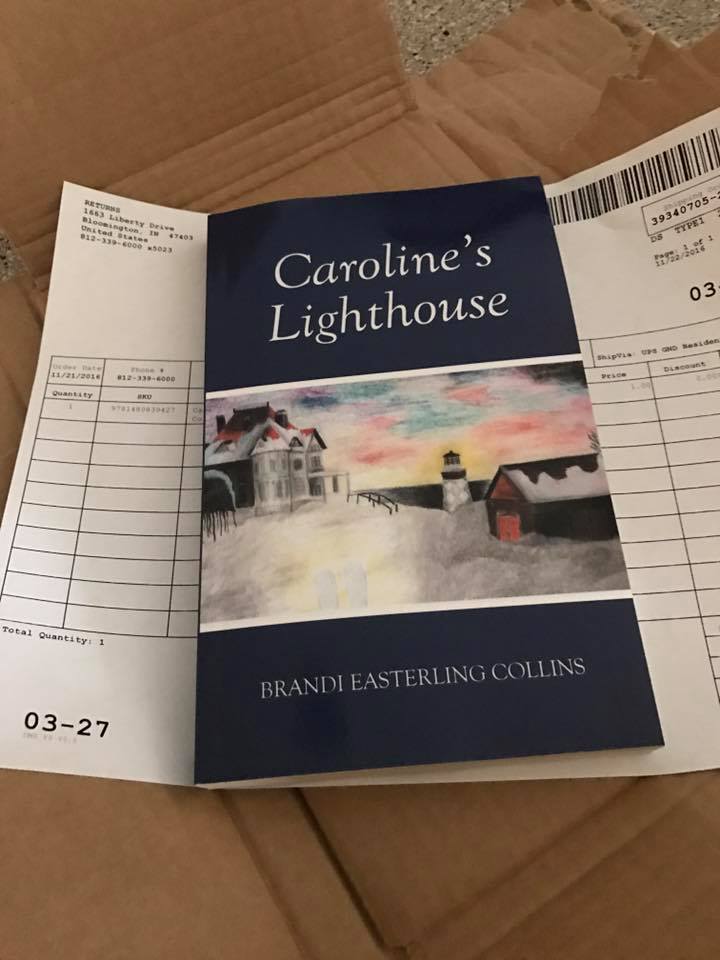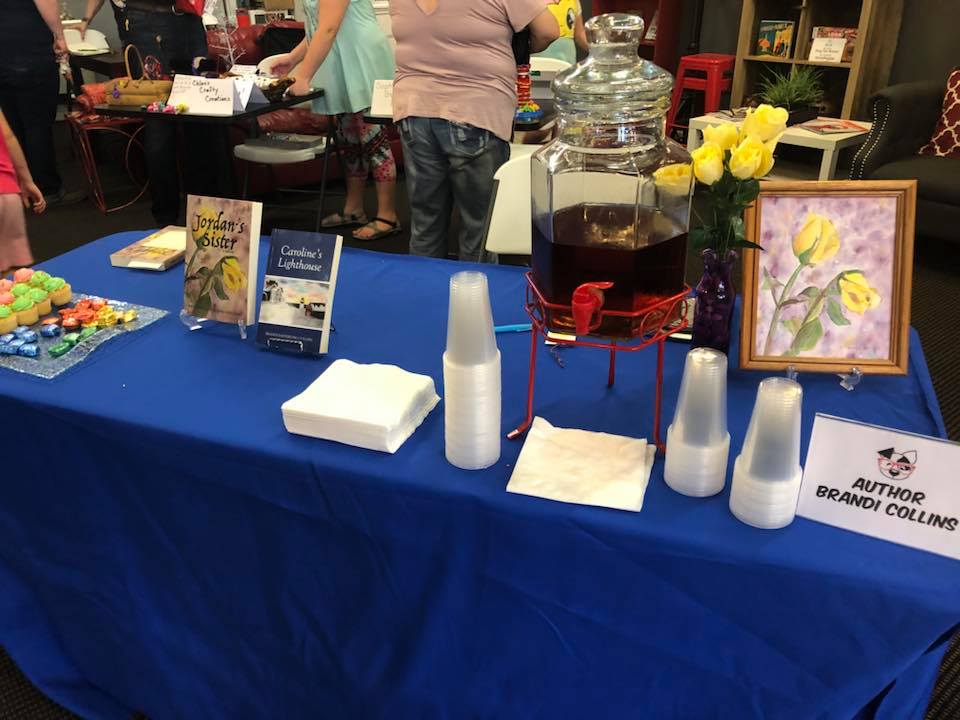Permission to Fail
When failure rears its ugly head, it hurts, but it’s also an opportunity for growth and change. National Novel Writing Month #NaNoWriMo took place in November. The goal, although self-imposed, was to write at least 50,000 words of a novel during the month. I started off strong, reached my daily word count, and generally kicked ass. Then I got stuck in the middle, so I skipped the middle for a while and worked on the after-the-middle part and rocked it. Then the final proof for Caroline’s Lighthouse came, which meant I spent several evenings and a whole vacation day proofing it. It was the most important free-time task I had at the time, so obviously it took priority. Then Thanksgiving happened, and the migraine, family-togetherness, and cooking took precedence.
The conclusion: I failed at my 50,000-word goal. The bright side: I have 42,566 words or roughly 172 pages which are almost an in-order narrative (there is still a bit of a gap in the story, but I’ll get there.) Another bright side: There are no real consequences other than being slightly disappointed with myself. Another notable occurrence: I gave myself permission to fail from the beginning because life gets in the way sometimes. I don’t have a deadline for Jordan’s Sister, but I would like to release it in 2017. So why did I set myself up for failure? Because I thought it would be cool to work toward a goal even if I didn’t accomplish it.
This isn’t the first time I have failed. I failed at learning to play the French Horn. I failed my driver’s test the first time. I failed tests in high school and college. I have failed at relationships. I have failed at being a good friend, a good wife and a good mother—not all the time, but sometimes. I have forgotten meetings, awards assemblies, and to send the right kind of toy that starts with a certain letter for daycare. I say that I’m doing the best I can, which is true most of the time. Other times, though, I’m not doing my best but doing what I can to get by. Sometimes “good enough” has to work. And just like everyone else, sometimes I throw my hands up in the air and give up because I’m not perfect, hence why I have a saved document on my work computer with the title “I screwed up memo” which I use often.
Another type of failure is being a sell-out. In the writing world, there are still a lot of people who feel that self-publishing is selling out and means the author is setting themselves up to fail. I disagree. While I went through a publishing company for my novel, it was still self-publishing—although guided by experts who I paid for their services. Traditional publishing is difficult. You have to get a literary agent to sell your work, but it’s hard to get one without having been published, but it’s almost impossible to get published without an agent. It’s Catch-22. Right now is a prime time for self-publishing because there are successful authors out there doing it. Digital printing makes print-to-order books an option, which helps keep costs down for publishing companies. With programs like Amazon’s Direct to Kindle eBook publishing, there is also a lot of crap out there too, unfortunately. But, I have seen some traditionally published crap too, so who knows what is the “right” way to publish?
 I chose Archway because I felt like I needed a lot of guidance to make sure I secured the proper copyrights, properly formatted my manuscript, and ensured my book looked legit with a barcode and an imprint that is associated with Simon and Schuster. Some message boards call Archway strict vanity publishing, meaning that they will publish anything as long as the author pays the fees. I didn’t find that to be true. My manuscript had undergone editorial review before they agreed to accept it, and I was told from the beginning that my fees would be refunded should they choose not to accept it. But honestly, some vanity is involved. When I held the first printed copy of my book in my hand, I was so proud. There was something about seeing my name on a novel that made me want to cry happy tears. Is that such a bad thing?
I chose Archway because I felt like I needed a lot of guidance to make sure I secured the proper copyrights, properly formatted my manuscript, and ensured my book looked legit with a barcode and an imprint that is associated with Simon and Schuster. Some message boards call Archway strict vanity publishing, meaning that they will publish anything as long as the author pays the fees. I didn’t find that to be true. My manuscript had undergone editorial review before they agreed to accept it, and I was told from the beginning that my fees would be refunded should they choose not to accept it. But honestly, some vanity is involved. When I held the first printed copy of my book in my hand, I was so proud. There was something about seeing my name on a novel that made me want to cry happy tears. Is that such a bad thing?
From the beginning, I considered Caroline’s Lighthouse an investment in myself. Will I recoup what I spent? I don’t know yet. Right now, every book I sell is a dent in my investment. What’s most important to me is that people are reading it and enjoying it. I worked so hard on it, pouring my heart and soul into it. When I made the investment, I had a plan for how to pay it off within six months without causing hardship to my family. I planned to pay for it without taking into account the book royalties. With royalty rates the way they are, I know how many books I have to sell to break even and how many I have to sell to make a profit. I don’t know how many will sell, but my first goal is to sell 1,000 copies. After that, I will set a new goal.
Ultimately, I had to stop being afraid and take a risk because life is short and I was tired of waiting. I don’t know what’s going to happen or how others will judge the successfulness of the novel. I feel okay with how things are going for now because I know one anonymous person read the book, rated it five stars on Barnes and Noble and wrote this: “This was a riveting story and held your attention from the beginning. It’s a tragic love story, that still manages to leave you feeling good with the ending.” I honestly have no idea who wrote that, if they are someone I know, a friend-of-a-friend, or someone who randomly found my book, but whoever they are, they made my day Saturday when I discovered the review. I saw it right after I sent out a request on Facebook for friends and acquaintances who have read the book to please review it.
The moral of the story: Sometimes we have to give ourselves permission to fail in order to give ourselves the opportunity to succeed. Where would we be if Thomas Edison or Nikola Tesla had stopped when they first failed at one of their inventions? Failure can be a way to learn from our mistakes, keep us safe from things that shouldn’t be, and help us improve.
-Brandi Easterling Collins


